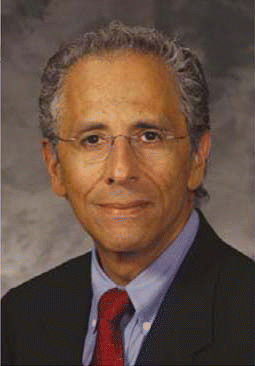Some clinicians, primarily gastroenterologists, doubt the existence of laryngopharyngeal reflux. But many otolaryngologists-head and neck surgeons and others have accepted the idea that, although it is related to and sometimes occurs in patients with gastroesophageal reflux disease, laryngopharyngeal reflux (LPR), the backflow of gastric contents into the laryngopharynx, stands alone as a disease.
Explore This Issue
May 2006Distinguishing the Condition
A group of symptoms, principally excessive throat clearing, persistent cough, globus pharyngeus (sensation of lump in the throat), and hoarseness, usually suggests LPR. Other symptoms of LPR may include dysphagia, postnasal drip or excess throat mucus, breathing difficulty or choking spells, and sore throat. All may be chronic or intermittent. Unless the patient also has gastroesophageal reflux disease (GERD), which some 20% do, heartburn is not present.
Non-specific but often associated signs seen on laryngoscopy include an inflamed larynx, pseudosulcus, and contact granulomas. Esophagitis is not usually present unless, again, the patient also has GERD.
In 1991, Jamie A. Koufman, MD, currently Professor of Otolaryngology at Wake Forest University School of Medicine in Winston-Salem, NC, and soon to become the first director of the Voice Institute of New York, was the first to state that LPR is a disease on its own-that reflux of gastric contents can indeed occur in the larynx causing these specific symptoms. She demonstrated this by ambulatory pH monitoring showing that acid is often present in these patients’ throats, and by other studies.
The culprit is believed to be a dysfunctional upper esophageal sphincter (cricopharyngeus), which allows gastric contents to move from the esophagus into the throat and even up into the nose or sinuses or down into the trachea and lungs. Indeed, many asthma patients also have reflux as a significant co-factor, according to Dr. Koufman. We have sometimes seen a chemical-type burn along the lung lining and the trachea, she said.
The theoretical basis for this is very sound. The larynx is not well protected with carbonic anhydrase-releasing enzymes and so it’s going to be damaged if even a little squirt of stomach acid which includes pepsin gets up there. – -Charles N. Ford, MD
Bringing LPR Out of the Shadows
Nonetheless, it has taken some time for LPR to emerge not only from the shadow of GERD but as a disease susceptible to specific diagnostic criteria and treatment. One difficulty, according to Charles N. Ford, MD, Professor and Chair of the Division of Otolaryngology-Head & Neck Surgery at the University of Wisconsin Medical School in Madison, is that in recent years there has been an overcall of this disease. Lack of appreciation for the fact that smoking, alcohol abuse, toxic inhalants, allergies, postnasal discharge, vocal overuse, and even infections can mimic mild LPR and that laryngoscopic signs can occur in asymptomatic people has occasionally led to such over diagnosis. This in turn has led some gastroenterologists to question whether LPR is real.

Leave a Reply